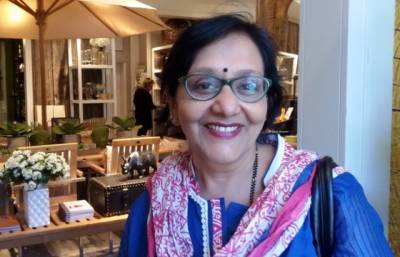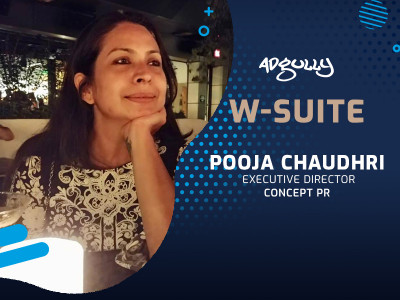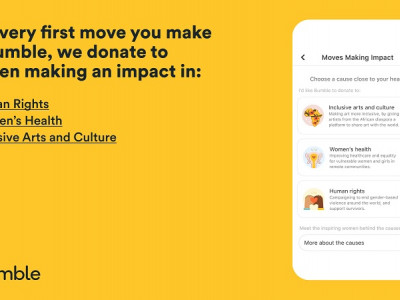The W-Suite | ‘Women leaders are shortchanged in terms of remuneration’
With a rapidly evolving business and economic landscape there is a dire requirement of fresh thinking, new skill sets, greater flexibility & adaptability, more collaboration as well as the ability to think on one’s feet.
Gone are the days when the thinking was more on the lines of ‘get a man to do this job’. Diversity in the workforce has become a necessity today, and more so in the leadership positions. It can’t be denied that women bring a high level of creativity and empathy while solving problems and handling crises. Women leaders bring to the table a different level of dexterity.
AdGully’s ‘The W-Suite’ series features interactions with influential women leaders in India, who share some deep insights on what being a woman leader means in India’s business landscape, the mantras to succeed, achieving work-life balance, pay parity and much more.
Jhum Jhum R Shirali, currently an Advisor - Corporate Communications & PR at battery major Eveready Industries India, has over 30 years of experience in the field of advertising, brand management, corporate communications and advocacy. In the course of her career, Shirali has worked in commercial organisations, advertising and PR agencies and an international NGO.
Shirali started her career in advertising with J. Walter Thompson, New Delhi, in Account Management and was responsible for the launch of the Executive Club in Welcomgroup Hotels and the energy drink Boost. She has also handled brands like Gestetner, Modi Continental tyres, Modiguard float glass, Eveready batteries and flashlights, Shantha Biotech, E&Y, Neotral ORS, and Blossom Kochhar Aroma Magic, to name a few. As Partner, O&M PR, she was actively involved in the nation-wide advocacy project Goli Ke Hamjoli, aimed at increasing the usage of oral contraceptive pills among urban women and has worked as a Project Coordinator in various bilateral donor funded health projects in Maharashtra, Rajasthan, Orissa and UP. As Project Coordinator of a DFID funded Capacity Building Project for NCERT under Sarva Shikhsha Abhiyan, she was responsible for all communication and knowledge management activities.
Shirali has a postgraduate degree in mass communications and a certificate in health communication from Johns Hopkins University, USA.
What defines a woman leader in today’s ecosystem?
I do not think it is fair to perceive a woman leader any different from a male leader. In the end, they have both worked their way up the corporate ladder with the same, if not more, grit and determination. They are focussed, goal-oriented positively driven team leaders. I would say a leader is someone who single-mindedly works towards a collective goal.
Why do you think a smaller percentage of women than men reach the top of their professions?
Although there has been a paradigm shift in the outcome of how girls perform in school versus boys the world over, as women climb the corporate ladder, they simply vanish. There are many factors which contribute to this de-growth in numbers. Firstly, women are riddled with the double burden of balancing personal and professional lives. Secondly, women have to work twice as hard to be valued like their male counterparts. Because of these reasons, the number of women leaders shrinks to a mere 3-4 per cent in the top management.
Do you think the leadership effectiveness of women is higher than men? Why?
I quote ‘The Economist ~ Why Women are more effective leaders then men’ when I say women, throughout their careers, maintain the habit of asking for feedback and taking positive action to improve. While men just tend to assume they are doing the right job, women are definitely more effective as leaders because they also maintain a more emphatic view of certain situations. However, that does not deter them from taking hard decisions when the need arises.
Women leaders in the 80’s and 90’s and women leaders today - what are the key differences? And what are the things that haven’t changed much?
Women are now emerging as stronger, more focused leaders. They are more goal-driven, hence probably able to achieve more. However, much of this can be attributed to the women leaders in the 80’s and 90’s as they paved the way for this change with their determination and will to succeed.
How do you maintain a balance between career goals and family responsibilities? How frequently do you have to sacrifice one for the other?
Women world over manage to find a comfortable spot between personal and professional life. I would not say that we need to sacrifice one for the other, rather we need to prioritise our lives better. It is also important that we always have a strong support system in place to manage both efficiently.
Do you think pay parity exists in our corporates today across levels? What about pay parity at the leadership levels?
An interesting example is highlighted by Malcolm Gladwell in his 2005 book, entitled ‘Blink: Power of Thinking Without Thinking’. In the book, Gladwell writes about Abbie Conant, who auditioned for lead trombone with the Munich Philharmonic orchestra in 1980. Since another prospective candidate on the day was affiliated to the selection committee, the auditions were conducted from behind a screen. All reports suggest Ms Conant delivered an exceptional performance, but the selection committee were shocked (even horrified) to discover that she was a woman. The committee overcame their bias long enough to hire her but, sadly, not long enough to afford her equal pay and equal rights (for the next 13 years).
Unfortunately, this is the situation across the board. Women leaders, despite demonstrating leadership skills at par with men, are still shortchanged when it comes to remuneration. Women need to work ‘twice’ as hard to prove that they are equal to men, which is just dismal.
What would be your advice to women aiming for the C-suite?
My advice would be to:
- Believe in yourself
- Work with the right kind of mentors to guide you on your way to success
- Be open to feedback as some of the most crucial perspectives come from usual quarters
What, according to you, are the 3 important lessons new women leaders need to learn?
- Don’t be bogged down by negative criticism. Take it in your stride and mould yourself
- You are as strong as your team. Nurture and develop talent in your team
- Don’t be afraid to take up challenging situations. Fruits of hard labour are always the sweetest
















Share
Facebook
YouTube
Tweet
Twitter
LinkedIn